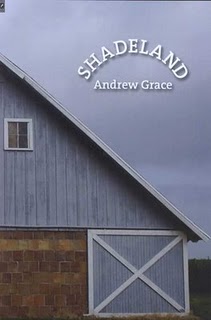Rick Barot: “The Poem is a Letter Opener”
In celebration of the arrival of the Spring-Summer 2010 issue (v5.n1) of Poetry Northwest on newsstands and in mailboxes, we offer you this instrument of opening by Rick Barot, exclusively online. “I wrote this poem during an autumn residency at the MacDowell Colony in New Hampshire,” notes Barot. “Prior to the residency, I hadn’t written a poem in many months, perhaps close to a year. And so my mind was full of half-thoughts and half-images and half-possibilities just waiting for some galvanizing energy to give them coherence. There was a rocking chair in the studio, and I spent nearly all my time in that chair, rocking and reading. On the day I wrote the poem, I was sitting in that chair and opened up Bill Knott’s book of poems The Unsubscriber, a favorite book. Immediately I came across the page that had this as the first line of a poem: ‘The poem is a letter opener.’ I closed the book, knew instantly that Knott’s line was the title of a poem that I wanted to write, sat down at the desk, and …




